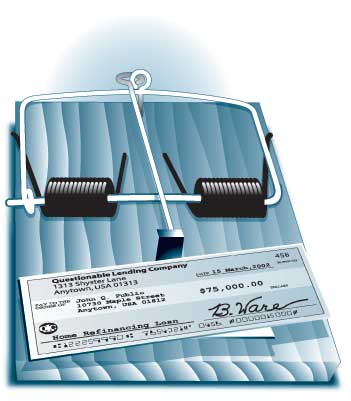Six steps to help you eliminate debt for good.
Impulse buys. Emergency car repairs. Unexpected medical bills. There are many reasons we fall into debt. Once you’re in that hole, it can seem nearly impossible to climb out. But, with enough determination and the right steps, you can live debt-free—and even begin saving! Here’s how:
Understand why you are in debt.
Do you go on shopping sprees to boost your mood? Do you make impulsive purchases? Do you find that you can’t cover unexpected expenses? Are you often lured into interest-free financing plans? Are credit cards your idea of financial planning? Take an honest look at how you got into debt in the first place so you can make changes that will help you in the future.
Stop adding to your debt.
If you can’t afford to pay for it in cash, you can’t afford to pay for it. Do not finance any purchases and put your credit cards away. Cut them up if you need to. Whatever you do, adopt a cash-only policy. And call companies that have automatic or reoccurring charges to your credit cards and ask them to bill you monthly instead.
Be familiar with the different types of debt.
While debt can get you into trouble, not all debt is bad. Debt with high interest rates (anything above 10%) is bad. Debt used to finance purchases that will never appreciate in value is bad. Home mortgages, and sometimes student loans (if the interest rate is low), however, are examples of “ok” debt because homes should appreciate in value and an education should provide you with a higher paying position. (Auto loans with a low interest rate are ok, as long as you can truly afford the monthly payments.)
Start saving for a rainy day.
Yes, you should start saving before you start paying down your debt. Why? Because without an emergency fund, you could find yourself acquiring new debt if something unexpected comes up. The idea behind saving is easy: spend less than you make. Turning that into reality can be a little more difficult, and will require some sacrifices on your part. Look at your monthly expenses to see where you can cut back and put those extra dollars into a separate savings account.
Know your rates and negotiate.
Pop quiz: What is the interest rate on each of your credit cards? Don’t know? Find out, and call those credit card companies to ask for a lower rate. If you cannot negotiate a lower rate, do not use those cards under any circumstances.
Begin to pay down your debt.
Line up all your credit card bills and other financed bills and add up the totals of your minimum monthly payments. Now pay more than that each month. There are two general plans of attack for eliminating debt:
- Pay down debt with the highest interest rate. The smaller the balance on such accounts, the less interest you’re being charged each month.
- Pay off your smallest balances. This can provide you with the psychological boost you need to keep paying down your debt.
Follow these steps and you’ll be well on the path to being debt-free. You don’t have to go it alone, though. If you’re feeling overwhelmed, contact a credit counseling agency, which can help you find ways to save and create a debt-management program that works for you. (Find a reputable agency through the National Foundation for Credit Counseling.)
This article contains general information. Individual financial situations are unique; please, consult your financial advisor or tax attorney before utilizing any of the information contained in this article.
Related Articles
- Six Tools for Dealing with Negative Equity
- How to Choose a Bankruptcy Attorney
- Need to Stop Wage Garnishment?
- Credit Card Collections Can Garnish Your Wages
- Co-Signing A Loan: What You Need to Know!
- Credit Score Numbers
- Keeping a Good Credit Score
- Negative Information on Your Credit Report
- How Your Credit Score Affects Your Life
- Your Credit Score Affects Your Auto Insurance Rates
- How to Lower Your Credit Card Interest Rate
- Open Unused Credit Cards
- Credit Card Collections Can Garnish Your Wages
- Airline Rewards Credit Cards - Get the Best Mileage for Your Money
- 5 Tips For Improving Your Credit Score
- Correcting Fraudulent Information in Credit Reports
- How to Improve Your Credit Score
- What is a Credit Score?
 Print
Print Email
Email










